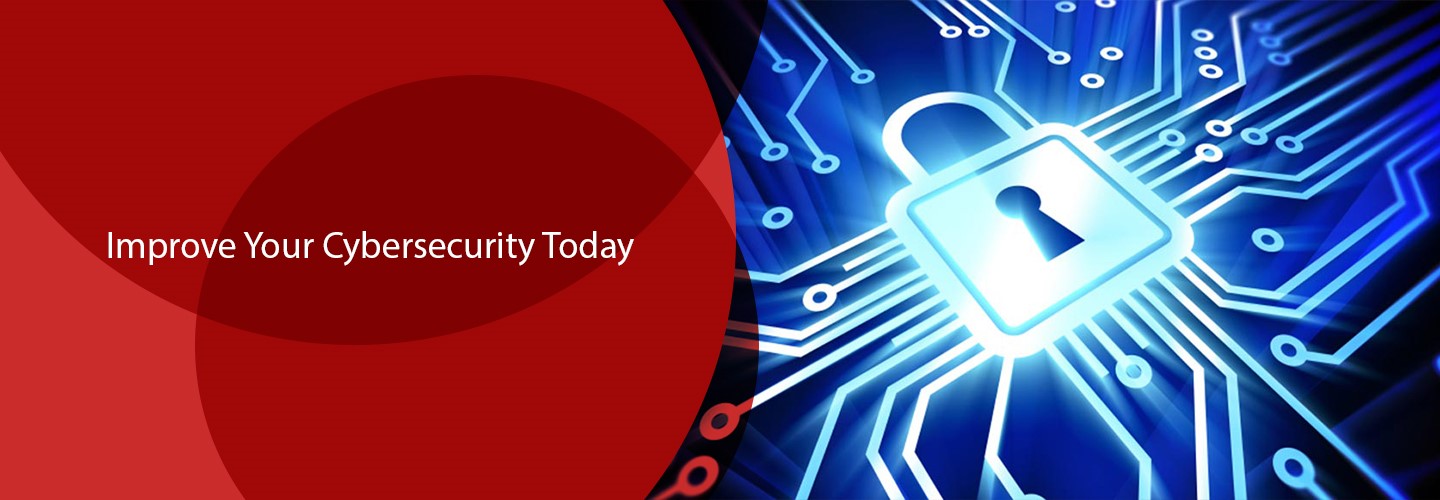Improve Your Cybersecurity Today – As more work is done using online systems, the threat to data security increases. A study by the Pew research center reveals that 64% of Americans have experienced some form of a data breach. The nature of these breaches include: credit card fraud, hacked email and social media accounts, a stranger trying to take a loan in another person’s name as well as the exposure of confidential data.
Yet despite these alarming security threats to one’s self, most Americans don’t actually actively take proper measures to protect their digital information. In fact only 12% of Americans are familiar with a password management system while only 3% genuinely utilize such a system. Using a pen and paper or relying on your memory just isn’t going to cut it anymore. Nor is it safe to share your password with friends or family or to keep similar passwords for the sake of convenience.
Concerned about your cybersecurity yet? Good, because you should be. Improving your cybersecurity is imperative in today’s day and age plus it isn’t even that hard! You need to adopt some basic habits, tricks and tips to improve your personal cybersecurity and we’ve compiled a list to help you do just that:
1. Personal Identifiable Information (PII)
What is PII? It’s basically any information that can be used to identify you: your name, date of birth, address, SSN, phone number, IP address etc. With so many of us using social media applications like Facebook, YouTube and Instagram it is important that we remember to keep very strict privacy settings and share as little information about ourselves as possible. Sharing even the most basic of information like our date of birth significantly increases the chances of our sensitive information being compromised by hackers.
2. VPNs for Public Wi-Fi
Sometimes working at home can be difficult and you might need a change of scenery by going to a café to work. However, the downside to using any public Wi-Fi is that it tends to be relatively insecure which is why you should use a VPN. Using a VPN means any potential hacker will only be able to view the IP address of the VPN server and not of your device. This will help prevent hackers from gaining access to your device.
VPNs are also helpful in that they encrypt all the data traveling from your device to the VPN server which heightens your internet privacy and safety.
3. Password Strength
Having a strong password is key to keeping cybercriminals out of your data. But what makes a password strong? As a general rule of thumb most passwords need to have at least one uppercase and lowercase letter, a number and about 4 symbols. In addition to this: you should never repeat your password i.e. don’t use the same password for multiple accounts, try to avoid keeping hints for your password and try to change your password annually. These measures might seem like a hassle, but it’s worth it considering it’s your personal information at stake.
4. Two-Factor Authentication (2FA)
This process is pretty self-explanatory as it refers to two means of verifying that you’re the authentic user of a certain account. By using 2FA you add an additional form of security to your account. Most accounts ask you for a username and password to login but in the case of 2FA you would enter your username and password along with some other form of verification. For example, you enter your username, password and then have to enter a code sent to you on your phone number. So even if a hacker enters your username and password they won’t have the code sent on your number thereby preventing them from signing in to your account.
5. Run An Anti-Virus Scan
Install reputable anti-virus software like McAfee, Avast, Norton etc. to make sure you are protected from known threats such as viruses and malware in the form of spyware, ransomware, Trojan Horses etc. If your laptop gets attacked by one of these your sensitive could be compromised much to your horror. So make sure to install a good anti-virus and manually run a full scan regularly to keep your digital devices in optimum health.
6. Firewall
A firewall can exist in the form of a tangible hardware device or it can exist as a program installed on your device. In addition to this many routers also have built-in firewalls for added security. By using a firewall you can screen out security threats in the form of viruses, malware and basically stop anyone from accessing your private network and data.
The most common operating systems, that is, Windows and Mac OS have built-in firewalls called Windows Firewall and Mac Firewall respectively
In Closing…
Given the rising rate of cybercrimes it is absolutely important for every person to become more proactive in ensuring their security. It is also important to make sure your ISP is reliable in terms of its service, security and customer support; after all most of use routers and devices provided by our ISP can play a role in our cybersecurity. This is why you should check out Grande Communications for their excellent customer service; it’s as simple as going to the Grande Communications login page and getting all the help you need.

